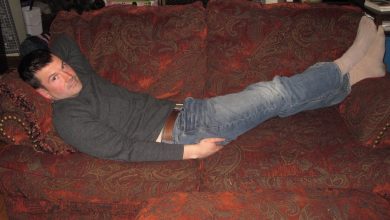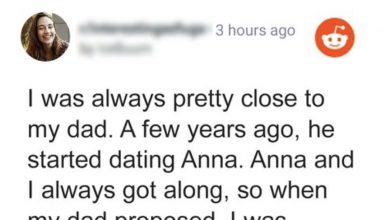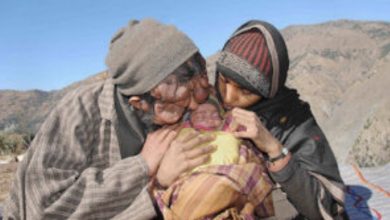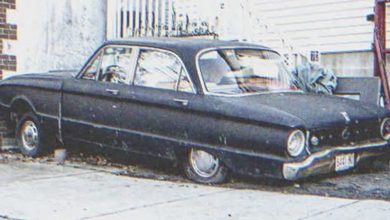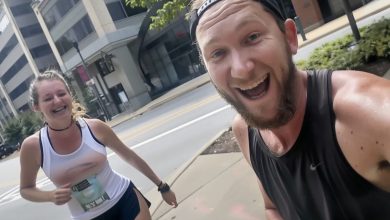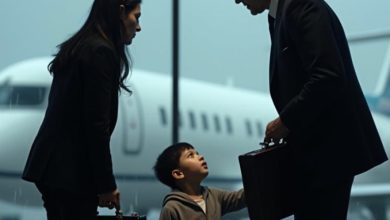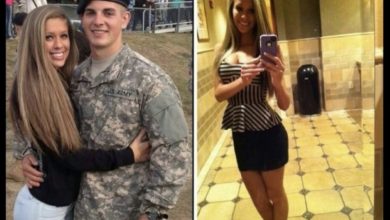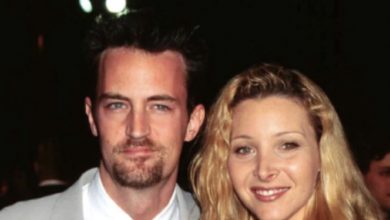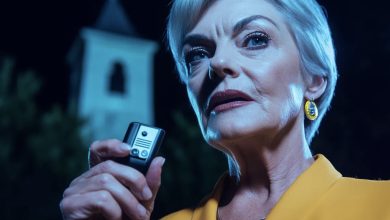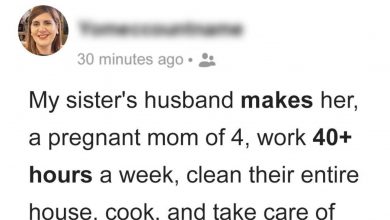Rejected by My Parents for Becoming a Teenage Mom — How an Unusual Elderly Woman Took Me In and Changed Everything
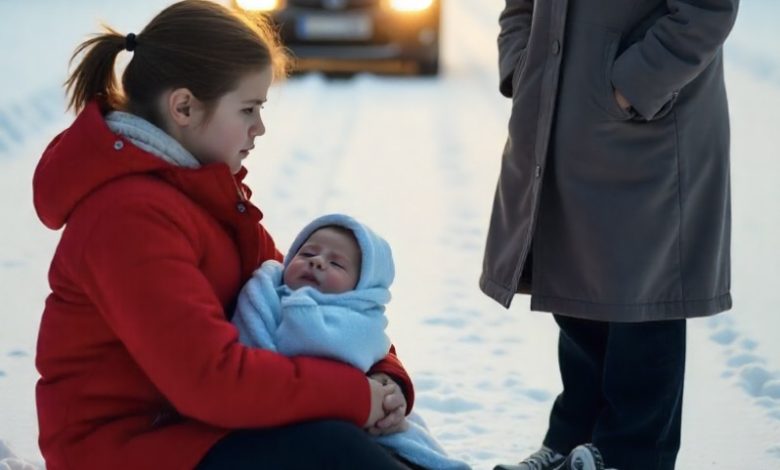
The night my whole world fell apart, the air in the house carried a mix of lavender laundry soap and the sharp smell of burnt toast. My mom had been fixing herself a late-night snack, and she’d forgotten about the bread in the toaster until it turned black at the edges. That smell clung in the air, but it wasn’t nearly as strong as the words she spoke—words that cut deeper than anything else I’d ever heard:
“If you plan to keep that baby, you can’t stay here. I won’t allow it.”
I was just seventeen. My throat was tight, and I had to hold my breath so I wouldn’t cry in front of them. My father stood in the doorway, arms folded tightly across his chest. He didn’t shout, but his silence was worse than anger. He refused to look at me. That was what stung most of all. In his eyes, I could see shame, disappointment, and something close to disgust.
My hand went instinctively to my belly. The bump was small—barely noticeable at four months—but big enough that my secret couldn’t be hidden under oversized sweaters anymore. I had been terrified to tell them, but a tiny part of me had still hoped they might soften once they knew. That maybe they would remember I was still their daughter.
I had been wrong.
That same night, with nowhere to turn, I packed what little I could carry into a single bag. A few clothes, my toothbrush, some school notebooks, and the sonogram photo I had kept tucked away like a secret. I walked to the front door. Neither of them tried to stop me. My mom turned her back to me, and my dad lit a cigarette on the porch, his face as hard as stone. When the door shut behind me, it was final. I wasn’t their child anymore.
I wandered the quiet streets of our small town for hours. The streetlamps threw long shadows across the sidewalks, and every step I took felt heavier than the last. Where could I go? My best friend’s parents were strict and deeply religious—they would never accept me. The boy who had fathered the baby, my boyfriend at the time, had vanished as soon as I told him. His excuse was cold and simple: “I’m not ready to be a dad.”
As though I had been ready to become a mom.
By midnight, I ended up in the park. I sank down onto a wooden bench, clutching my bag against me, stomach growling with both hunger and fear. The stillness of the night pressed down on me, and that was when I realized just how completely alone I was.
And then, the strangest thing happened.
Down the path, a figure appeared. She moved with surprising energy for someone clearly well into her seventies. Her clothes looked as eccentric as she was: a long purple coat, mismatched gloves—one red, one green—and a scarf wound around her neck three times. A wide-brimmed hat sat on her head, though tufts of silver hair curled out from beneath it. She pushed a little cart decorated with stickers and trinkets that jingled as she walked.
She spotted me right away. Most people her age might have crossed the street to avoid a teenage girl sitting alone in the dark. But she didn’t. She came straight toward me.
“Well now,” she said, her voice a mix of warmth and sharpness. “You look like a lost bird that’s landed in the wrong tree.”
I blinked, unsure what to say. “I… I don’t have anywhere to go.”
“Don’t we all feel that way sometimes?” she replied, settling onto the bench beside me. “Name’s Dolores. Folks around here call me Dolly. And you are?”
I hesitated. “Marissa.”
“Lovely name,” she said with a little nod. Her eyes—bright, piercing blue—studied my face before dropping to my stomach. “Ah. So that’s the story.”
My cheeks burned. “My parents kicked me out,” I whispered.
“Then they weren’t doing their job as parents, were they?” Dolly said firmly. “Their loss. Come on, up you get. You’re coming home with me.”
I froze. “I don’t even know you.”
She chuckled. “And yet I’m the only one offering you a roof tonight. Don’t worry, child, I may be odd, but I’m not dangerous. Ask anyone in town. I’ve been feeding stray cats—and stray people—for decades.” She leaned in closer with a grin. “Right now, you happen to be both.”
For the first time in hours, I almost laughed. Against everything I had been taught about strangers, I found myself standing and following her. Something about Dolly radiated safety.
Her home sat at the edge of town: a wide Victorian house painted bright turquoise with sunny yellow shutters. Wind chimes rang on the porch, and ceramic garden gnomes lined the path. When she opened the door, I was greeted by the cozy smell of cinnamon and the sight of colorful chaos. Every surface was filled with trinkets—glass jars full of buttons, piles of books, knitted blankets of every color.
“Make yourself at home,” she said, hanging her coat. “Tea?”
I just nodded.
In minutes, she returned with two steaming mugs and a plate of cookies. As we sat at her kitchen table, she studied me like she was solving a puzzle.
“You’ve been handed a cruel hand,” she said finally. “But life has a funny way of offering second chances where you least expect them.”
I stared at my tea. “I don’t know how to do this. I can’t raise a baby alone. I can’t even finish school now.”
“Of course you can,” she said briskly. “I taught school for thirty years. You’ll finish one way or another. And as for the baby—no one should have to do that alone. Lucky for you, I’ve got too much space and too much time. We’ll figure it out.”
“Why would you help me? You don’t even know me,” I whispered.
She shrugged. “Because once, long ago, someone helped me when I thought my life was over. Kindness is a debt you repay your whole life. Besides, I like babies. And I like stubborn girls who refuse to give up.”
That was the night everything changed.
The weeks that followed were like stepping into another world. Dolly set up a room for me upstairs, painting the walls a gentle yellow. She drove me to doctor’s appointments in her flower-painted Volkswagen Beetle. She taught me how to cook simple meals and left sticky notes on the fridge reminding me to rest.
She was quirky in every way. She believed plants grew faster if you talked to them. She collected abandoned shopping carts and painted them into flower planters. She wore mismatched earrings because “symmetry is boring.” But under all her odd habits, she had a strength like steel. She didn’t pity me or treat me like I was broken. She pushed me to study, to prepare for motherhood, to believe in myself.
At first, I dreaded the whispers in town. People stared at me in the grocery store, whispering about “that pregnant girl living with Dolly.” But Dolly had a way of silencing them. Once, when a neighbor muttered about “wayward teens,” Dolly snapped: “She’s braver than most adults I know. What’s your excuse?”
For the first time, I felt like I belonged.
By spring, my belly was round, and Dolly threw me a baby shower in her garden. She hung colorful lanterns and set tables with food. People came—more than I expected. Some brought gifts, others hugs, but all brought warmth.
The night my daughter was born, Dolly was beside me. She held my hand, cracked jokes between contractions, and wept when Leah’s cry filled the room.
Motherhood nearly drowned me. The sleepless nights, the endless worry, the exhaustion—it was more than I ever imagined. But Dolly never left me. She rocked Leah when I couldn’t, brewed me tea, and reminded me to breathe.
“You’re stronger than you think,” she’d say whenever I doubted myself.
With Dolly’s help, I finished high school online. I walked across the stage at graduation while Dolly held Leah in the audience, cheering louder than anyone. Two years later, I enrolled in community college. It wasn’t easy juggling studies and a toddler, but Dolly pushed me forward. Leah grew up in her garden, learning to count with buttons, listening to Dolly’s wild stories.
One autumn evening, Dolly sat me down. “I won’t be here forever, bird. This house—it’s yours and Leah’s when I’m gone. I’ve already arranged it.”
Tears filled my eyes. “Dolly, you’ve already done enough—”
“Hush. I didn’t save you. You saved yourself. I just gave you a place to land until your wings grew back.”
Years passed. I finished college and became a teacher, carrying forward Dolly’s lessons of resilience and compassion. Leah thrived in school, bright and curious. Dolly lived long enough to see Leah turn ten before passing peacefully in her sleep.
Now, every time I walk through the turquoise halls of her house, I tell Leah stories about the woman who saved us both.
I tell her how one night, when I was lost and alone, an eccentric old woman in a purple coat decided I was worth saving.
And I always remind her of Dolly’s words:
“Kindness is a debt you repay your whole life.”
So that’s what I do. I open my heart, my classroom, and my home to others in need. Because I know how it feels to be lost—and how powerful it is when someone decides you’re worth finding.

